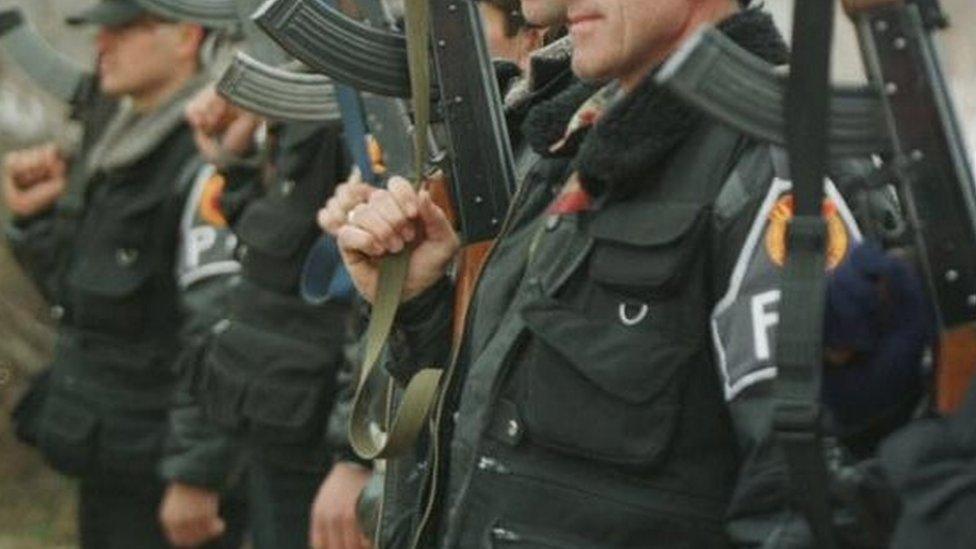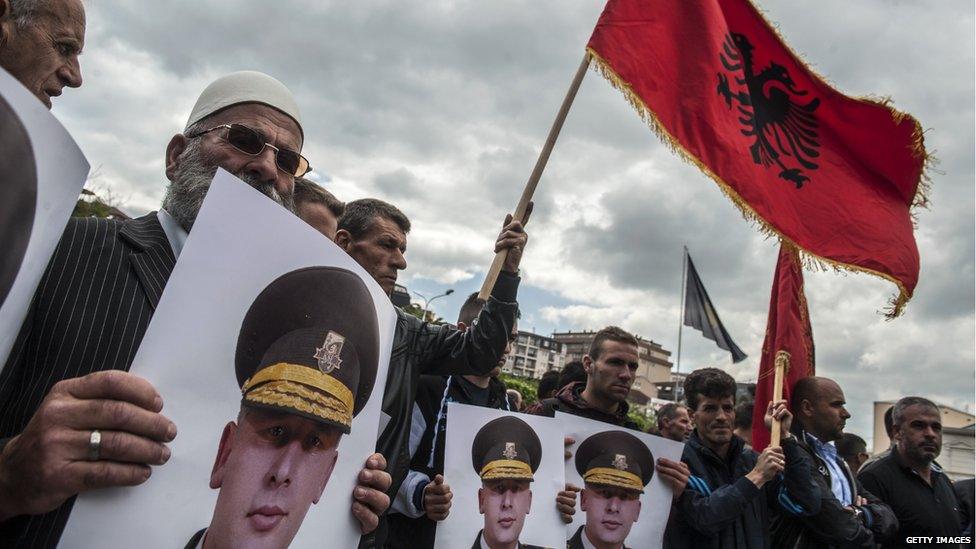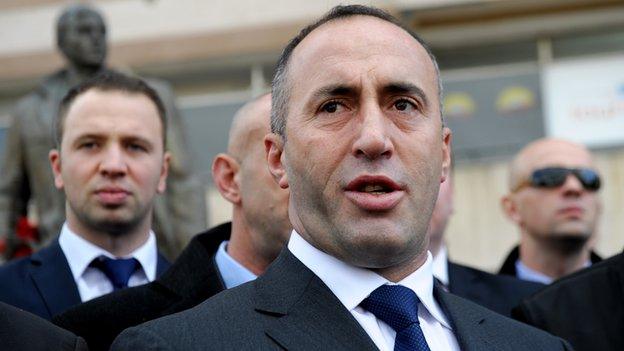Kosovo war crimes court to try KLA suspects in The Hague
- Published

Ethnic Albanian rebels fought Serb forces during the war
A special court is being set up in The Hague to try war crimes committed during the 1999-2000 war in Kosovo, the Dutch government says.
It will try serious crimes allegedly committed by members of the Kosovo Liberation Army (KLA) against ethnic minorities and political opponents, a statement said, external.
The court is set to begin operating later this year.
The conflict pitted ethnic Albanian rebels against Serbian forces.
Until 2008, Kosovo was a province of Serbia. Years of tensions turned into open conflict in 1998, when the Serbian government launched a crackdown.
It eventually withdrew its troops from Kosovo after a two-month campaign of air strikes by Nato in 1999.
Kosovo declared independence from Serbia in 2008, although Serbia has never recognised this.
An estimated 10,000 people died in the conflict and about 1,700 remain missing.

Tribunal could prove vital, by Guy Delauney, BBC News, Belgrade

Some Kosovo Albanians, who hold former KLA commanders in high regard, have protested against the new court
The International Criminal Tribunal for the former Yugoslavia (ICTY) has tried and convicted many Serb officials over the past two decades, but it has generally failed to find justice for hundreds of thousands of ethnic Serbs who were themselves the victims of forced displacements or atrocities.
This has damaged the ICTY's credibility, especially in Serbia, and hampered reconciliation efforts.
Officially, the new tribunal will be a national court of Kosovo, despite its location in The Hague.
But it should finally deal with the long-festering allegations that members of the KLA - many of whom have risen to high positions in the government - committed atrocities.
Members of Kosovo's ethnic Albanian majority who view the KLA as heroes may resent the process. But the tribunal might prove vital, as Serbia and Kosovo continue efforts to normalise relations.

The Dutch statement admits that trying war crimes "is a sensitive issue in Kosovo".
"Possible suspects may be seen by sections of Kosovan society as freedom fighters, and witnesses may feel threatened in Kosovo," hence the reason for cases to be heard abroad.
"It is important for justice to be done," Dutch Foreign Minister Bert Koenders said.
"So we are pleased to be able to offer the court a home."
A 2011 report, external from the Council of Europe, which monitors human rights, accused KLA rebels of serious crimes, including the trafficking of prisoners' organs.
Parliament in Kosovo approved the creation of the tribunal last year, despite protests and an opposition boycott of the vote.
Kosovan Albanians make up about 90% of the population, and tensions remain with the Serb minority.
Earlier this month anti-government protesters clashed with police in a demonstration against a deal giving more power to ethnic Serbs.
- Published4 August 2015

- Published18 June 2015

- Published25 November 2022